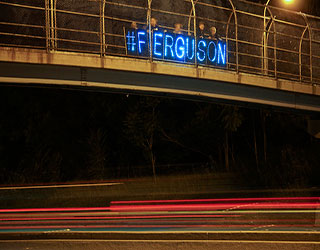
The fatal shooting of Michael Brown, an 18-year old black teenager, by a white police officer in Ferguson, Missouri sparked protests and civil unrest in the U.S. and abroad in 2014-2015. This course aims to help students understand how American criminal justice arrived at its current troubled state, and what can be done to change it. (Image courtesy of Light Brigading on flickr. License CC BY-NC.)
Instructor(s)
Prof. Malick Ghachem
MIT Course Number
21H.319
As Taught In
Fall 2014
Level
Undergraduate
Course Description
Course Features
Course Description
This seminar looks at key issues in the historical development and current state of modern American criminal justice, with an emphasis on its relationship to citizenship, nationhood, and race/ethnicity. We begin with a range of perspectives on the rise of what is often called "mass incarceration": how did our current system of criminal punishment take shape, and what role did race play in that process? Part Two takes up a series of case studies, including racial disparities in the administration of the death penalty, enforcement of the drug laws, and the regulation of police investigations. The third and final part of the seminar looks at national security policing: the development of a constitutional law governing the intersection of ethnicity, religion, and counter-terrorism, and the impact of counter-terrorism policy on domestic police practices.
Other Versions
Other OCW Versions
Archived versions: ![]()


